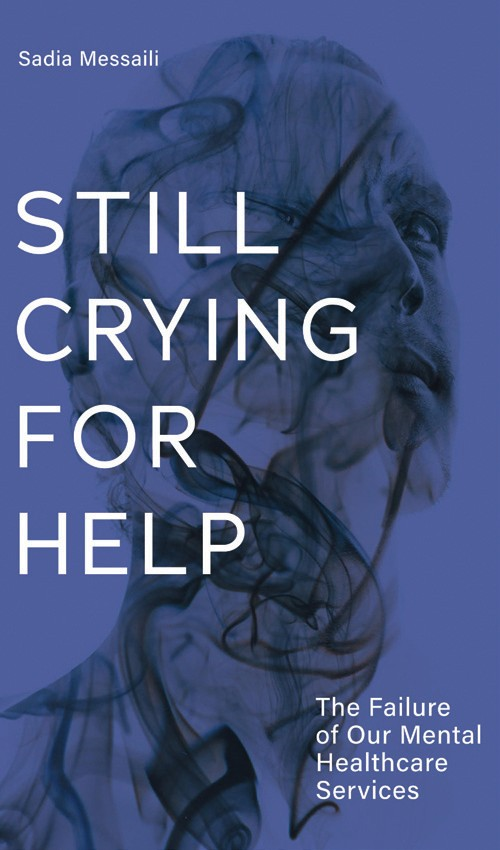Still Crying For Help by Sadia Messaili
Still Crying For Help: The Failure of Our Mental Healthcare Services
by Sadia Messaili
translated by Aleshia Jensen
Baraka Books, 2020; 226 pages; $24.95
Reviewed by Shawn Syms
“I slam my body against his kitchen door, but it doesn’t budge.” Sadia Messaili is home late from her grand-daughter’s figure-skating competition, and her troubled thirty-two-year-old son Ferid, who lives downstairs in a basement suite, is nowhere to be found. His door has been locked from the inside. Once it’s finally forced open Ferid is found in the bathtub, with no pulse.
Still Crying for Help: The Failure of Our Mental Healthcare Services is part memoir, part polemic. Messaili details how her son’s needs went unmet by Montreal’s mental-health establishment — and makes the case that the system that failed Ferid is fundamentally flawed and not set up to help anyone.
Sadia Messaili is a primary-school teacher and special-needs educator who wrote of her immigration experiences in a prior memoir, La route de la dignité. In Still Crying for Help, she paints a portrait of a shy child, an excellent mathematician who dreams of becoming a pilot. But as Ferid enters his twenties, that reserved countenance darkens.
A feverish nightmare one night marks his descent into psychosis, convinced he is part of a secret organization protecting society from the Illuminati, a conspiracy theory. The family reaches out for medical support, and gets a diagnosis in return: schizophrenia.
Messaili’s prose is clear and direct, exposing you to her thought processes as well as her emotional pain. She starts the book at the point of Ferid’s death, then works backward — the trauma of forced migration experienced by mother and son alike, Ferid’s bright childhood followed by an increasing reclusiveness into his teens.
The author details her son’s mental health journey — prescriptions that seemed to harm more than they helped, a psychotic relapse wherein Ferid believed he was Christ. Throughout, they encounter insensitive and distracted healthcare professionals who consider Ferid troublesome because he doesn’t want to take the meds. His death occurs shortly after an acute crisis episode where his mother takes him to the hospital, but they won’t admit or treat him. Come back tomorrow for the day program, they say. Tragically, Ferid chose an alternative to that. Writing and researching the book is Messaili’s means to try and make sense of things. In doing so, she is influenced by the anti-psychiatry movement, whose philosophies run the gamut from a healthy critique of the psychiatry establishment and big pharma to the assertion there’s no such thing as mental illness and that psychiatric medications are poison.
Psychiatrists and hospital staff have a single-minded focus on pills into bodies, Messaili says, and are quick to attribute drug side-effects to the underlying condition. Echoing the anti-psychiatry stance, she characterizes Ferid’s medication regimen as “continu[ing] to poison himself to avoid a relapse.”
The question of treatment, its focus and its potential harms, particularly captivates Messaili. The book lists the side effects of Ferid’s medications at great length. And the people pushing the pills are dupes, she asserts. “What about prescribing physicians? It seems they are no better informed than we are, blindly following drug representatives who are willing to dangerously filter or distort information about these drugs so they can turn a profit.”
Messaili writes with passion about a terrible personal tragedy, and shines an important light on alternative approaches to treatment. But her case is subtly undermined by its cut-and-dried take on the issues. I believe everything she says about her son’s plight. And I believe many other people have suffered similarly. But that doesn’t generalize to all people who have experienced mental-health crises.
We all know that pharma is a for-profit enterprise and companies have proven they can’t always be trusted. But for countless people, the benefits of psych meds do outweigh the risks, transforming lives for the better, something Messaili would seem to discount. So things are not so simple. but Still Crying for Help raises an urgent voice in the ongoing debate about life, death, and mental health.

